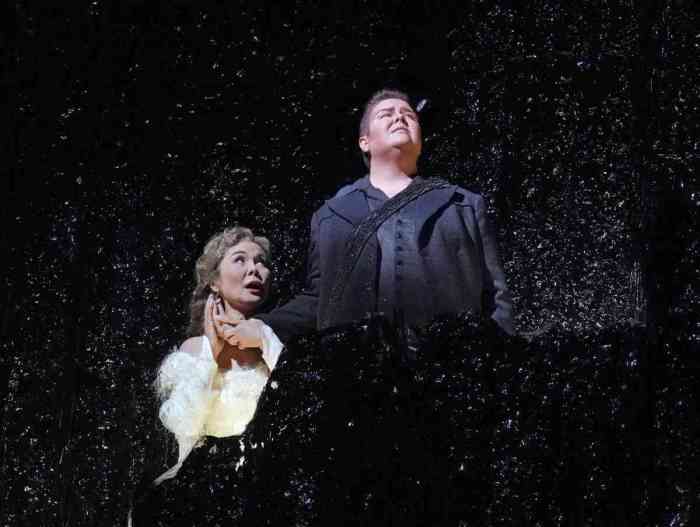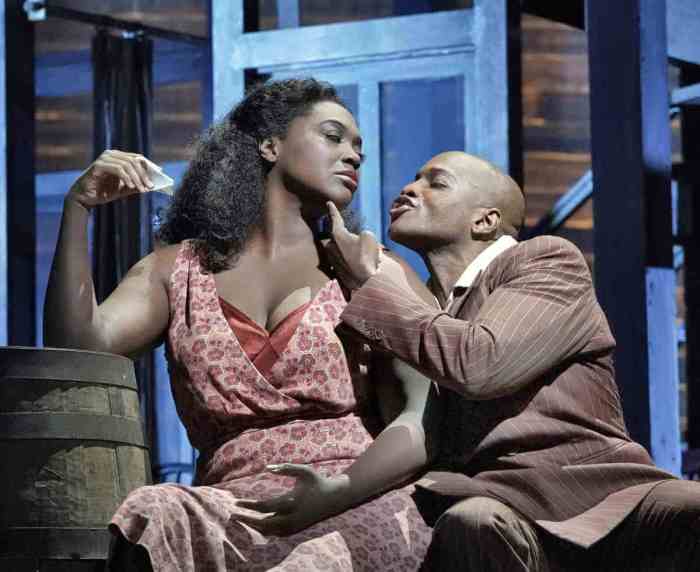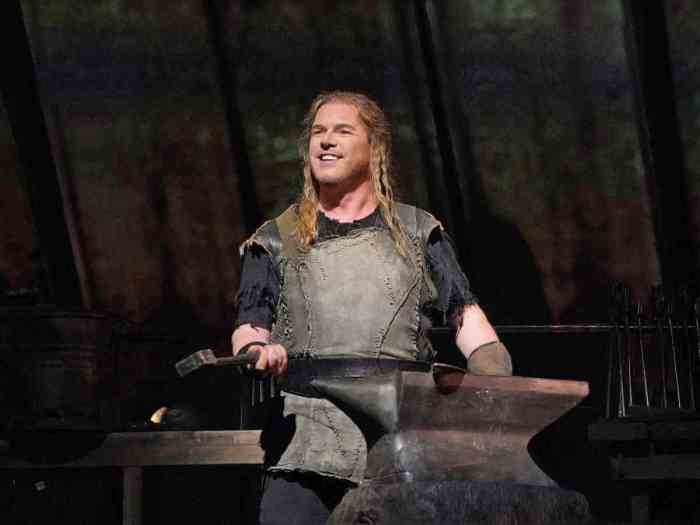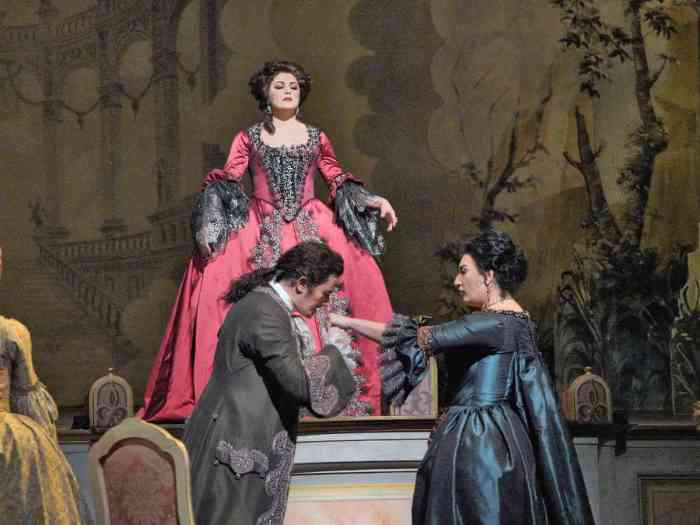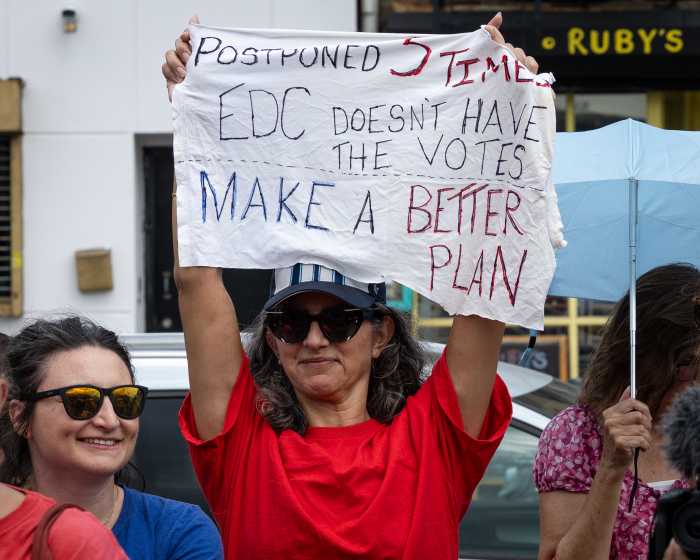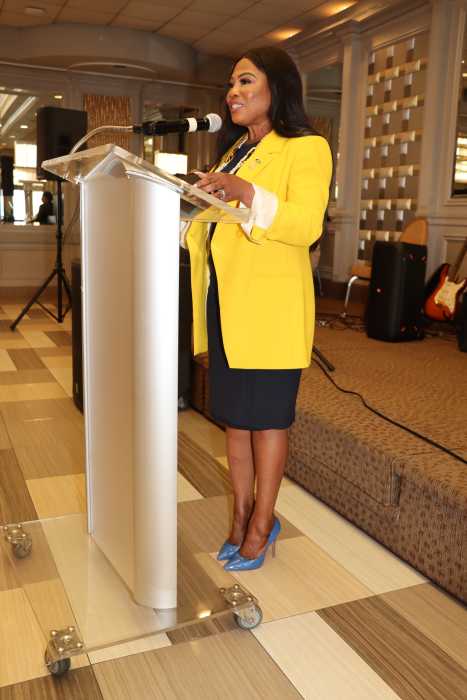Michael Fabiano as Edgardo in the Met production of “Lucia di Lammermoor.” | KEN HOWARD/ METROPOLITAN OPERA
It used to be that when cancellations occurred at the Metropolitan Opera it was a cause for disappointment and concern; lately it has become a cause for celebration. This season has seen numerous cast changes –– “La Bohème” had 15 performances and after the opening night every one had a cast change in a major role. “La Traviata,” “Die Meistersinger,” “Le Nozze di Figaro,” and “Don Carlo” all had major cast changes –– mostly for the better.
Michael Fabiano and Sonya Yoncheva are two young up-and-coming stars whose Met careers have been sidelined by its artistic administration’s habitual slowness to recognize new talent, exacerbated by the five-year casting cycle that only benefits agents and over-the-hill singers.
Fabiano, a dynamic American tenor, has been something of an MVP this season. In early December, during the down time between high profile European engagements, he jumped for two performances of “Bohème” when Ramón Vargas canceled. But Fabiano had only seven hours to prepare on April 1 when he stepped in as Edgardo in “Lucia di Lammermoor,” commuting from Philadelphia to replace Joseph Calleja, who had canceled that morning due to a lingering throat infection. He went on without rehearsal and having never seen Mary Zimmerman’s production –– even on video. The “Verranno a te” love duet in Act I suffered from a touch of vocal overdrive but Edgardo’s interruption of Lucia’s betrothal to Arturo in Act II was electrifying. After a high voltage Wolf’s Crag duet in Act III, Fabiano banged his forehead on a low-hanging lighting unit as he exited through a doorway. Hiding his bandage under a wig, he sang the tomb scene with melting mezza voce tones and musical poise.
Michael Fabiano, Sonya Yoncheva are welcome pinch hitters at the Met
The high intensity drive and passion evident in the documentary “The Audition” –– which covered Fabiano’s prize-winning participation in the 2007 Metropolitan Opera National Council Auditions –– inform his operatic portrayals, but his vocal technique has improved markedly in the intervening eight years. He has reworked his upper register so that the tone is freer and more focused. As Rodolfo, Fabiano nailed the sustained high C at the end of “Che Gelida Manina” in Act I of “Bohème.” The gritty and sometimes forced middle register has mellowed and darkened, suggesting spinto potential in the future; Cavaradossi and Don José are definite possibilities. He is still only 30 years old, and his focused sound has projection and presence in the theater – even up in the Family Circle (where I sat for “Lucia”).
Fabiano’s intense, truthful acting brings out the best in his partners but can also reveal by comparison their artifice and mannerisms. In “Lucia,” his brooding, Byronic Edgardo poured red-blooded passion into a tame, tired revival. Albina Shagimuratova’s Lucia is a demure, sweet little dumpling with a round, limpid, full coloratura voice capable of easy high notes but with few signs of inner life or musical imagination. In comparison with dramatic spitfires like Dessay, Netrebko, and Damrau who have preceded her in this production, she is rather dull. Fabiano owned the stage from his entrance, energizing her performance, which suddenly came to life and gave her something to live and die for onstage.
In the case of Angela Gheorghiu, Fabiano’s “Bohème” leading lady, her faded, underpowered voice, overly artful fussy phrasing, and calculatedly busy acting were shown up by his straightforward ardor, honest engagement, and ringing vocal command. In Act I, her Mimi quickly forgot her illness and became overly animated; at times she competed with her leading man for the audience’s attention. Gheorghiu ignored the baton of conductor Riccardo Frizza, pulling the tempo back so she could add little nuances on each phrase (though, in fairness, perhaps his rather arbitrary tempos deserved to be ignored). Returning to the Met after a four-year absence, her soprano sounded hollow and without core and barely projected into the auditorium except for isolated forte high notes.
In the Act IV death scene, however, Gheorghiu showed what a great artist she has been and could still be. The wispy hollow tone suggested a woman clinging to life. In her last moments, Mimi sees her impending death with widened haunted black eyes while her body rises in defiance and releases her soul then drops inert –– a shattering moment of tragic acting. Still, the dramatic verismo roles rumored for the Romanian diva in future Met seasons are likely not to happen –– she cannot vocally sustain them in a house the size of the Met.
In “Bohème,” David Bižić was a warm-voiced, manly, bluff Marcello, Alessio Arduini a vocally and visually slight but animated Schaunard. Matthew Rose’s youthfully rich basso cantante and shaggy bearded towering presence as Colline completed an excellent crew of bohemians. Susanna Phillips offered a warm heart, bright smile, and creamy soprano in place of strident vulgarity as Musetta.
In “Lucia,” Luca Salsi was a burly, can belto Enrico while Alastair Miles sounded slightly dry but fielded excellent legato line as Raimondo. Maurizio Benini’s conducting was professional but often mechanical. The Zimmerman production requires a 45-minute scene change between Acts 3 and 4, the result being that some in the audience became restless, even irate and started to leave before the Mad Scene. The scenery either has to be redesigned for quicker assembly or the Met needs to institute an early curtain with a dinner break. “Lucia” should not last nearly four hours.
Fabiano will not be on the 2015-2016 Met roster. Given his busy international schedule, he will likely not be available to drop in at the last minute in the future.
Sonya Yoncheva as Violetta in the Met production of “La Traviata.” | KEN HOWARD/ METROPOLITAN OPERA
In December and January, Sonya Yoncheva, a Bulgarian-born soprano, cut short a planned post-maternity convalescent leave to make her role debut as Mimi, replacing Kristine Opolais. In January, she dropped her scheduled Musettas to substitute for the vocally indisposed Marina Poplavskaya in the second cast of “La Traviata.” Yoncheva’s Violetta offered possibly the best combination of vocal and dramatic abilities the Decker production has seen so far. Yoncheva’s soprano is beautiful with a dark, rich core that has a shimmering, silvery overlay marked by a fast spinning vibrato reminiscent of Pilar Lorengar. (Her Mimi put one in mind of a young Mirella Freni).
It’s said that Violetta requires a different voice in each act but Yoncheva’s complex timbre has many colors not only for each act but for each phrase. The silvery point in her tone and her early training in baroque music meant that the Act I coloratura was handled deftly, while its rich core filled out the tragic spinto requirements of the later acts. Her courtesan had an almost fatalistic resignation to her sad fate but also a fighting spirit that rebelled against it.
Tenor Francesco Demuro proved a more than serviceable Alfredo with a lean-toned, tonally unmemorable but reliable and well-balanced lyric tenor. Alexey Markov’s rich-toned commanding baritone was appropriate for Decker’s more antagonistic view of Germont but the baritone snarl persisted d during “Di Provenza.” Marco Armiliato provided sympathetic support to the singers but few insights in the pit.
Yoncheva will open next season as Desdemona in a new production of “Otello.”



